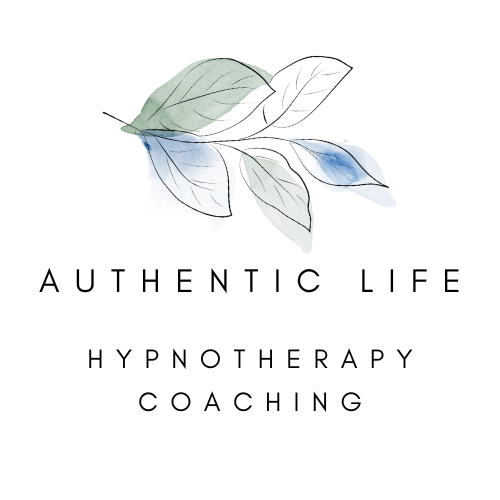
Blog
Procrastination
Would you like to procrastinate less? Probably. Most people seem to, and yet it continues.
Our personal effectiveness comes down to the ways that we organise and balance our life according to our highest priorities, maintaining our focus on the end goal and setting aside distractions that come between us and it. But you probably already know this. Consciously, you want to achieve more and might even know how to get more done. But to see results, your actions need to match what your subconscious mind thinks is doable and in your best interests. If there’s a mismatch, it will get in the way to protect you.
The problem
Let’s start by defining procrastination as a lack of energy to do what we should or would like to do. Perhaps you have a book just itching to be written; fingers hover motionless above the keyboard when imperceptibly, energy drops, and the mind wanders.
Unless it’s a conscious choice to let things go and take a break, at the heart of every decent procrastinating tendency is an unresolved conflict, a protective mechanism and a lack of appreciation that our time on this earth is finite.
Unresolved conflicts vary greatly depending on our experiences and the type of goals we set ourselves. Carrot-and-stick “shoulds” are the easiest to conceptualise as they often come with a very big stick and not much carrot. Amusingly, most productive people find that the less time they have available in their day, the more they get accomplished: when a “should” becomes a “must”, we get on with it. “Would like to do” goals are more subtle: in these, the objective that we do want seems a distant aspiration that requires effort and sacrifices to reach. Perhaps the dopamine reward won’t be worth it or only be short-lived. Or all that effort might come to nothing or make us a laughing stock if we blunder. Fear of judgement and rejection can be worthy adversaries, even facing the most robust and sparkling goals.
Procrastination offers a safe refuge. A comfortable delusion, it represents a human need for protection, perhaps avoiding potential disapproval from others or from disappointing ourselves and our fragile self-esteem. It shows up within us as a draining of energy, but in reality, the subconscious is hard at work doing what it does best: protecting us from potential hurt. No matter how much our willpower might contest, a deeper part of us feels it must protect us from a particular pain that resonates within us. The inner mind holds a powerful grip on our emotions, so it engineers its success and bypasses the neocortex. We sub-consciously lower our energy and our presumptuous brain, intent on defending its conscious primacy, finds a way to rationalise that lack of energy. Or it simply distracts us.
A solution
The good news is, your subconscious mind is continually being programmed by new experiences. In fact, all we are is changing. But since we find it hard to access our subconscious mind, it’s very hard to tell from one moment to the next when shifts occur.
Your belief about how much you can accomplish during a set period of time is regulated by your subconscious mind: it must carry out the patterns and behaviours that it knows to be true. And so the opportunity lies with you. You can either reduce your actions until they match with your subconscious mind’s belief about what you are capable of, or you can increase what that part of you believes you can achieve until your results are a reflection of your inner mind.
Where focus goes, energy flows, and the inner mind isn’t good at distinguishing between negatives and positives. So rather than focusing on what we don’t want, might it be better to look at what we want to do? Forget about trying to amputate or censure the procrastinating side of yourself; it is far more potent than your willpower. Instead, make friends with it. Pat it on the head and say thanks. Get in touch with any feelings lurking within, and listen. Every uncomfortable feeling has a valuable message; simply acknowledging that message often releases its sting.
Instead of wondering, “How do I stop myself from procrastinating?” let your intuition lead you to the most enticing, energy-filled opposite you want. Listen to your needs, and you will come up with a feeling that naturally draws you towards it. Elevate that feeling higher: vividly imagine it and ask yourself, what is the even more important feeling or need driving me deep down? What am I here to fulfil? Imagine yourself effortlessly meeting that need and ask again, is there an even higher purpose I am working towards? Keep going until your highest purpose fills you, paint its vision in your mind’s eye and feel it at your fingertips. Hear it all around you and fill your emotions with how it feels. Shift your posture and live the experience in your body until it tingles.
And with that sensation in mind, rather than looking at a goal or a result as the unique source of pleasure, begin to consider the whole journey as a source of fulfilment towards your higher purpose. It’s a magnetic voyage filled with learning, connection and opportunity. In that state, rather than having to work to reach a particular end goal, you get to live the joy of your higher purpose, learn, develop and grow with each step towards it. We have such a brief time to play upon this earth, and in this way, each step holds meaning, passion and joy.
Pain and pleasure
People tend to run away from pain or towards pleasure, and given a choice between the two will usually run away from pain. So turn your attention to who and what suffers if you ignore your higher purpose: your integrity, values or your zest for life. Your business, clients, colleagues or friends? Pause and let those thoughts ponder. In an instant, procrastination is no longer a comfortable delusion: it becomes a waste of every spark of light and creative juice coursing through the body.
When you focus on a daring dream to live the finest version of yourself, emotions shift, and a state of flow commences. The inner mind’s perception of its protective role adjusts to its emotional need to thrive with integrity and authenticity. Anything less becomes the definition of pain.
Harmony
Of course, this isn’t the whole story: our limbic, feeling brain holds an ocean of emotions in its toolbox. Even with the most ecstatic of intentions, we may subconsciously find other ways to protect ourselves from the risks we perceive. Our most profound fight/flight/freeze response is hardwired to focus on risks, so how can a rational neo-cortex ever hope to master a churning sea of emotions? The answer, I suspect, is that it simply can’t. Only in building harmony within ourselves will our focus be free from distraction and mixed messages. And this is where getting comfortable with being uncomfortable becomes such a blessing. Each time we step outside our comfort zone, we release endorphins that flood our synapses with happiness. We build new habits, our decision-making becomes more confident, and we renew our opinion of ourselves. Bumps along the road, mistakes and the judgement of others seem less momentous. They become necessary obstacles toward the shining imperative of personal growth and integrity.
Whether you call it neuroplasticity, heightened self-awareness, renewed cell memory, or harmony of the conscious and the subconscious, permanent change occurs when we shift perception.
Procrastination is a very human trait, but by embracing the wonder of the journey as well as the goal, a shift in perception can accompany almost any task. Every moment of every day, we have the freedom to choose our perceptions. Think of all the things that went well yesterday, the blessings and opportunities that came your way. Make friends with your mental blocks, accept the mystery of life and relax into joy. Breathe. With self-acceptance comes self-discipline, so check in with yourself once a week to see if you are on track. Forgive yourself when you drift; it’s human. Nobody ever walked the first time they tried.
I offer a free audio recording to help shift the subconscious beliefs that underpin procrastination. If you would like to try it out, you can find it here.
Life can be so short and unpredictable, so when would now be a good time to start?

Recent Comments